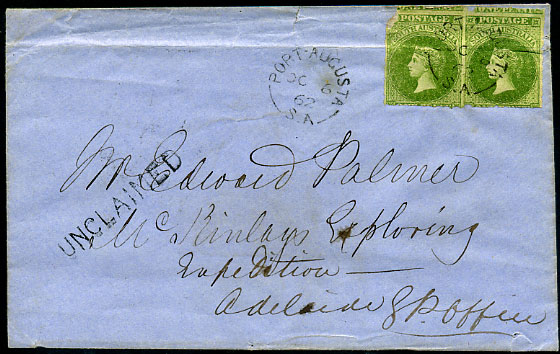
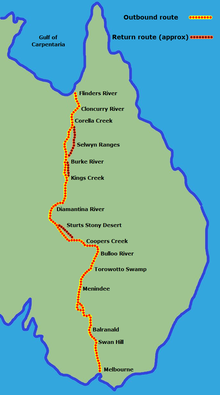
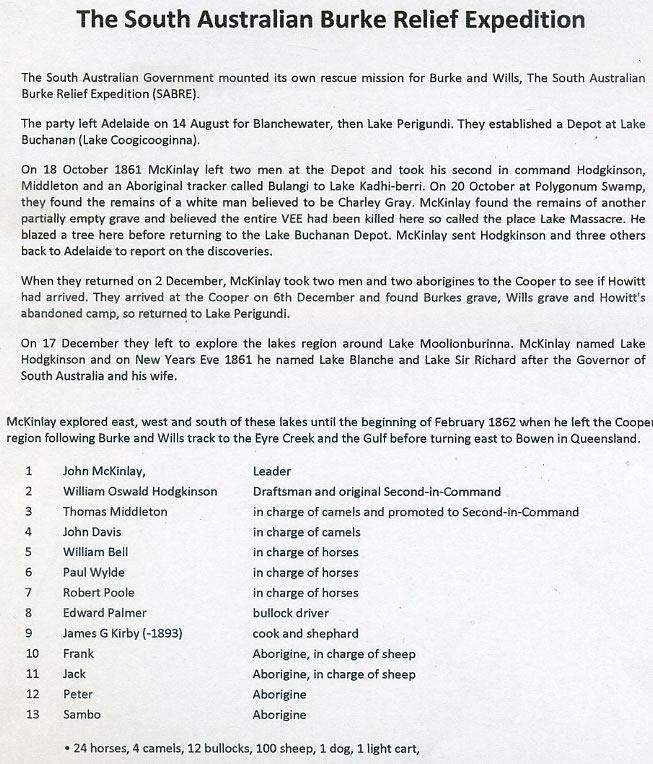
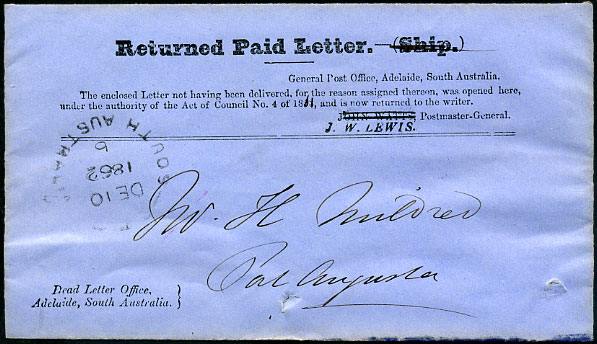
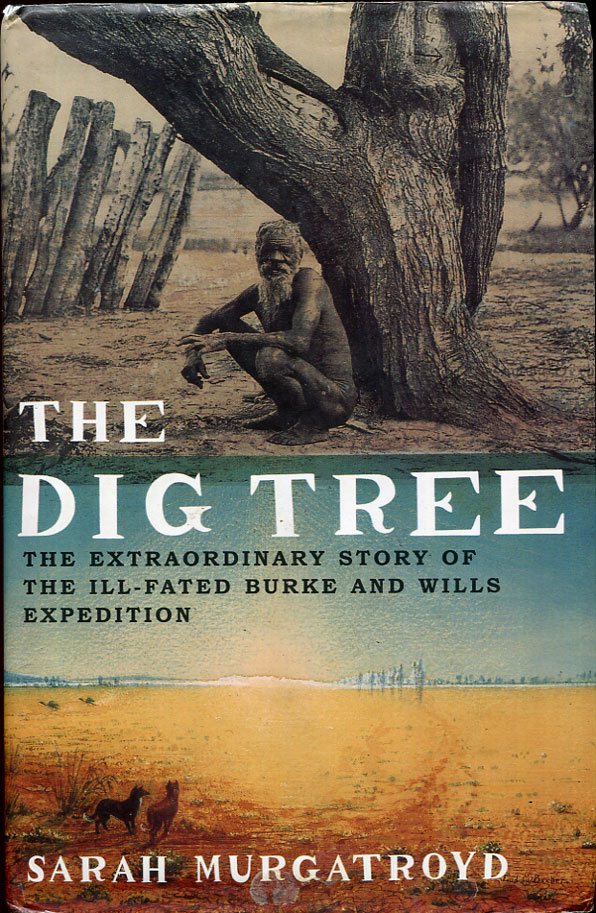
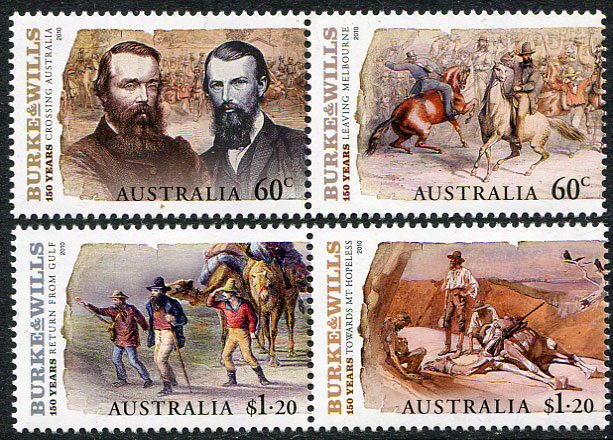
| THE SEARCH FOR EXPLORERS BURKE and WILLS, South Australia postal and social history
1862 cover to Mr. Edward Palmer, McKinlays Exploring Expedition, Adelaide G.P. Office with pair QV 1d (one defective corner) pmk'd PORT-AUGUSTA OC 6 62 with handstruck "UNCLAIMED", reverse GPO OC 8 1862/7 datestamp. Filing crease crosses adhesives as the unclaimed letter was placed in the accompanying "Returned Paid Letter" back to Mr. H. Mildred, Port Augusta making an exceptionally rare "round trip" pair. In 1859 the South Australian Government offered £2,000 for the first successful south-north crossing of the continent west of the 143rd line of longitude. In 1860-61 Robert O'Hara Burke and Willian John Wills led an ill-fated expedition of 19 men with the ingroup back to report only to find that another expedition under Howitt, which had left June 1861, had already found the graves of both Burke and Willstention of crossing from Melbourne (south) to the Gulf of Carpentaria (north), approx. 2,000 miles. At that time most of the continent had not been explored by non-indigenous people. The south-north crossing was successful but both of the expedition leaders died on the return journey. Only one man, John King, made the eventual return to Melbourne. Six expeditions were sent to search for Burke and Wills. One left August 1861, under McKinlay, and found the remains of Charles Gray, one of the expedition, and a partially empty grave in the Cooper Creek area. McKinley sent part of his in that same area. In December McKinley visited the site of the graves and then went on to explore the lakes region around Lake Moolionburinna. In February he left the Cooper region following Burke and Wills track to the Eyre Creek and the Gulf before turning east to a station on the Bowen River near Port Denison in Queensland, and the party returned by sea to Adelaide.
Edward Palmer was the bullock driver with the McKinley led "South Australian Burke Relief Expedition". Accompanied by previously owned Sarah Murgatroyd's book THE DIG TREE, the extraordinary story of the ill-fated Burke and Wills Expedition (372 pages) and 150th anniversary commemorative stamps.
£1425 | |